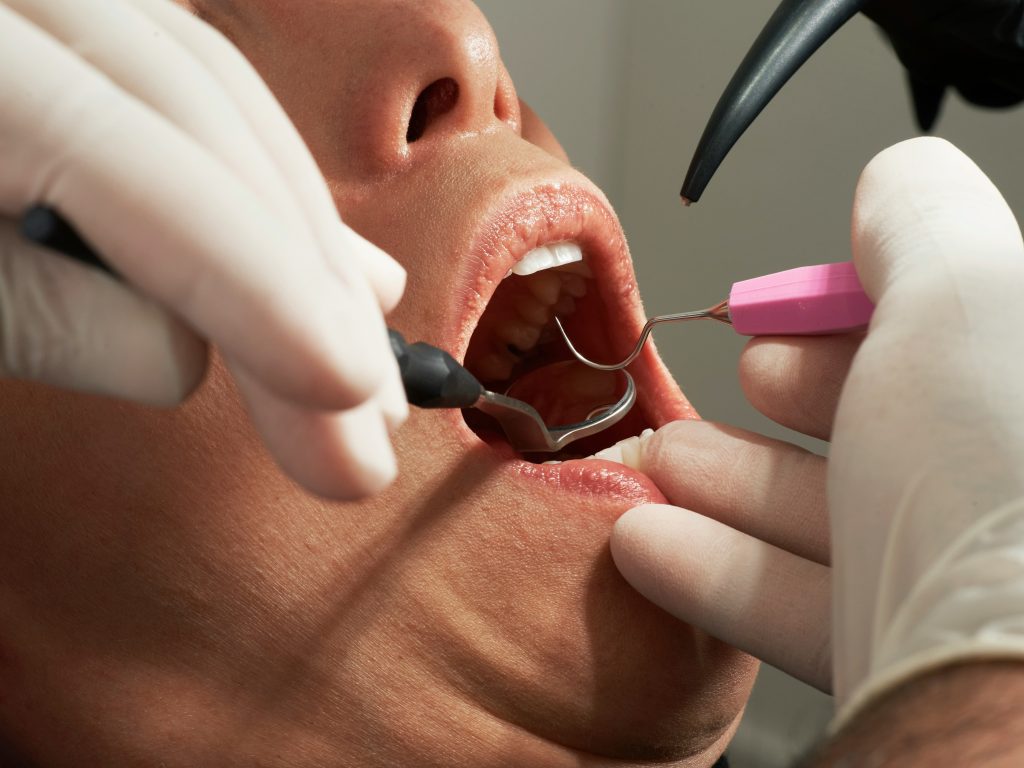Can Dental Implants Get Infected? What You Need to Know!

Dental implants have an incredibly high success rate, making them a fantastic choice for many people. However, like any medical procedure, there’s always a small chance of complications. One potential issue is an infection around the implant. Don’t worry – this is often treatable! In this blog post, we’ll dive into what you need to know about dental implant infections. So if you are wondering can dental implants get infected and how to cure them, find it out here!
Can Dental Implants Get Infected?
The short answer is yes, dental implants infection is a reality. While implants are designed to be long-lasting, infections can happen due to various factors. It’s important to be aware of this risk. Thankfully, there are ways to prevent infections and treat them if they occur. Understanding the signs and symptoms of a potential dental implant infection is crucial for protecting your smile.
What is Peri-Implantitis?
Dental implants are a fantastic way to replace missing teeth, but it’s important to know that they aren’t completely immune to problems. One potential issue that can arise is called peri-implantitis. This is an infection that develops around a dental implant. Peri-implantitis is similar to gum disease (periodontitis) which affects natural teeth.
However, instead of your gums and the bone around your tooth is compromised, the infection targets the tissues and bone supporting your dental implant. If left untreated, peri-implantitis can lead to bone loss and eventually cause the implant to fail. Catching and treating the infection early is crucial to protecting your investment and ensuring your dental implant remains strong and healthy.
Signs and Symptoms of a Dental Implant Infection
Dental implant infections don’t always announce themselves with flashing lights. However, there are several red flags to watch out for. If you have a dental implant, stay alert for these potential signs of trouble:
Redness and Swelling
The gums around your implant may look red, inflamed, or swollen. This is often one of the first signs of infection.
Bleeding
Brushing and flossing near the implant might cause bleeding. Healthy gums shouldn’t bleed easily.
Feeling Loose
A stable implant should feel just like a natural tooth. If it starts feeling loose or wobbly, it could indicate infection and bone loss.
Pus or Bad Taste
You might notice pus near the implant or a persistent bad taste in your mouth. These are telltale signs of bacterial activity.
Pain or Discomfort
While some tenderness after implant placement is normal, ongoing pain, throbbing, or discomfort around the implant site could signify an infection.
Causes of Dental Implant Infections
Understanding what causes dental implant infections can help you take proactive steps to protect your smile. Some of the most common risk factors include:
Poor Oral Hygiene
Just as insufficient brushing and flossing can lead to gum disease, poor oral hygiene increases the risk of infection around your dental implant. Bacteria can build up and eventually attack the gums and bone.
Smoking
Smoking is a major enemy of oral health in general and can significantly increase your risk of implant infections. It also hinders healing and makes it harder for your body to fight off infection.
Uncontrolled Medical Conditions
Conditions like diabetes can weaken your immune system and leave you more vulnerable to infections, including those around dental implants.
Pre-existing Gum Disease
A history of gum disease (periodontitis) puts you at higher risk of developing peri-implantitis.
Issues with Implant Placement
If the dental implant surgery isn’t performed properly, or the implant isn’t the right size or position, this can create areas more prone to infection.
Treating Dental Implant Infections
The good news is that dental implant infections can often be treated successfully, especially if caught early. The sooner you seek treatment from your dentist, the better your chances of preserving the implant and preventing further damage. Here’s what you need to know about treatment options:
Importance of Early Intervention
Don’t wait to see if the symptoms go away on their own. If you suspect an infection around your implant, schedule an appointment with your dentist right away.
Treatment Varies Based on Severity
Your dentist will assess the severity of the infection and recommend the appropriate treatment plan. Here’s a look at potential treatment options:
1) Professional Deep Cleaning
For milder cases, a thorough cleaning around the implant might be enough to control the infection. This involves specialized tools to remove bacteria and plaque buildup from below the gumline.
2) Antibiotics
Your dentist may prescribe antibiotics to help fight the infection, especially if it has spread further.
3) Surgical Intervention
In severe cases where bone loss has occurred, surgery might be needed. This could involve cleaning the implant surface, bone grafting, or other procedures to address the damaged areas.
4) Implant Removal
In the worst-case scenario, if the infection is too extensive and the implant can’t be saved, removal might be necessary.
Preventing Dental Implants Infections
Preventing infections around your dental implants is all about proactive care! The best way to protect your smile is by practicing excellent oral hygiene – brushing twice a day, flossing daily, and paying close attention to cleaning around your implant.
Regular dental checkups from renowned clinics such as A-Plus Dentistry and cleanings are also essential for catching any problems early. Manage any underlying health conditions, and if you smoke, quitting is one of the best things you can do for your implant health (and overall health!).
Conclusion
Do dental implants get infected? The answer is yes. An ounce of prevention is worth a pound of cure – this holds especially true for dental implants. Taking excellent care of your implants with meticulous brushing, flossing, and regular dental checkups significantly reduces your risk of infection. Staying informed and proactive gives you the best chance at a long-lasting, healthy smile.


Leave a Reply